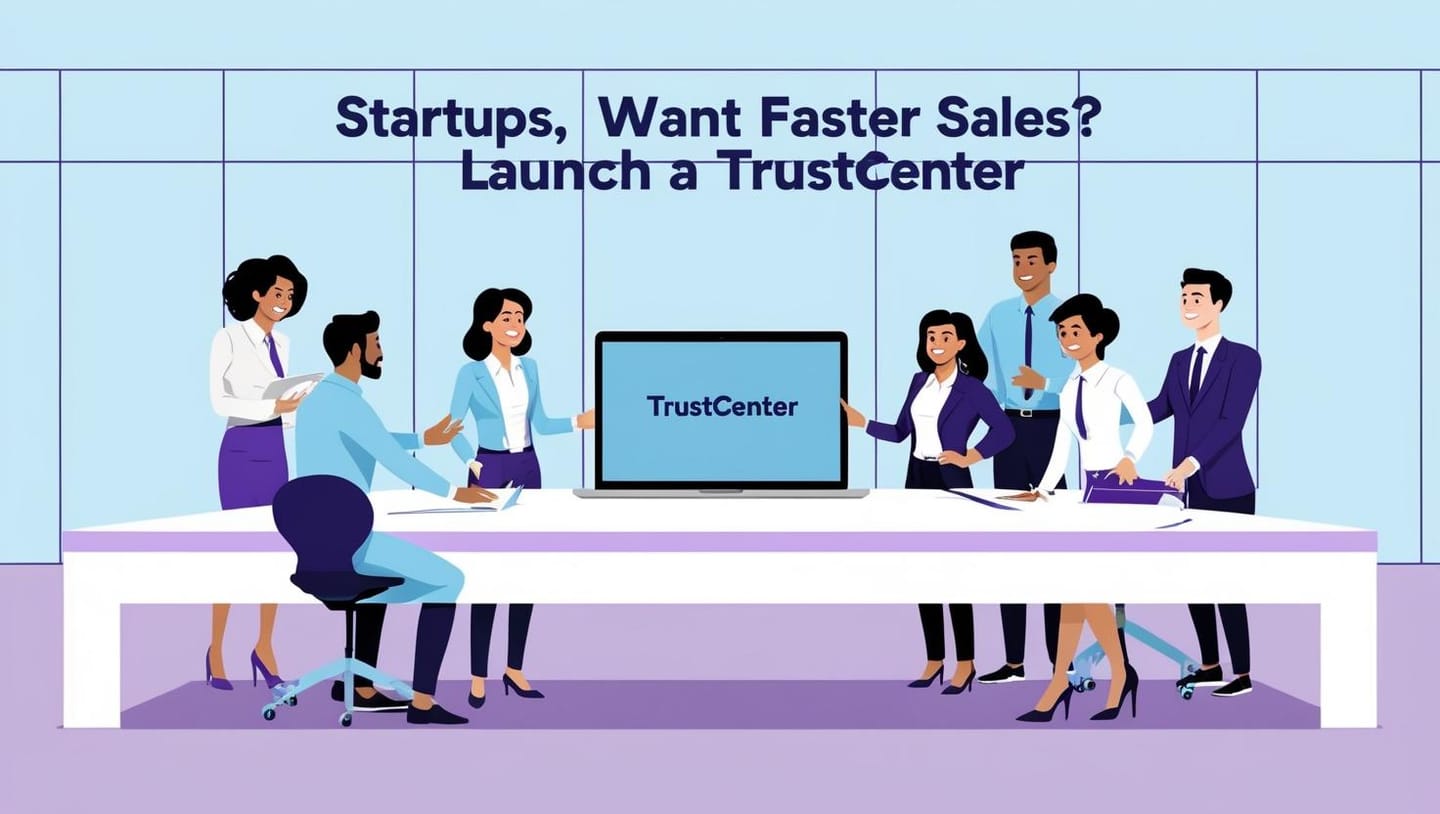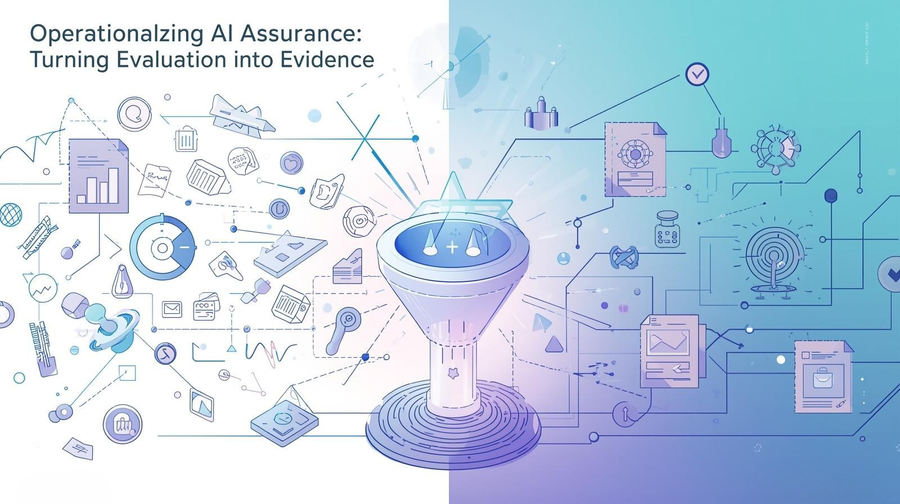In 2025, AI governance isn’t just a buzzword—it’s a business necessity. Yet many startups still lean heavily on showcasing impressive features, often overlooking what truly matters to buyers in regulated sectors: reducing risk. For industries like finance, healthcare, and government, trust isn’t optional—it’s foundational.
If your sales cycles feel frustratingly long, the issue might be hidden in plain sight: your prospects aren’t just evaluating your technology, they’re scrutinizing your ability to manage risks. Here’s how launching a TrustCenter can proactively address these concerns and accelerate your path to closing deals.
The Hidden Costs of Long Sales Cycles
Sales delays aren’t merely inconvenient—they’re costly. Gartner research shows that technology procurement in regulated industries can extend sales timelines by up to 40%. Why so long? Compliance evaluations, risk assessments, and extensive documentation reviews create roadblocks that can stall even the most promising deals.
According to Deloitte, while 75% of executives agree that AI will significantly transform their businesses, only 25% feel prepared to manage the associated risks. This preparedness gap leaves buyers hesitant, prolonging decisions and creating hurdles that startups desperately want to overcome.
Shifting the Narrative: From Features to Risk Reduction
When buyers in regulated industries evaluate a new AI solution, risk mitigation trumps cutting-edge features every time. Recent insights from the Ada Lovelace Institute highlight that transparency, ethics assessments, and fairness validations have become non-negotiable for public-sector AI procurement.
Deloitte further underscores this shift by predicting that the market for AI risk management will balloon to $276 billion by 2030. Clearly, emphasizing risk reduction isn’t just beneficial—it's vital. By reframing your narrative around comprehensive governance and compliance, you immediately speak the language your prospects value most.
Introducing the TrustCenter: Your Transparency Dashboard
A TrustCenter is more than just a webpage—it’s your central hub for showcasing your commitment to AI governance. This transparency dashboard provides accessible, verifiable proof of your regulatory and ethical diligence, including:
- Policy Transparency: Clearly articulated policies on data privacy, ethics, and AI usage.
- Risk Assessments: Detailed audits of bias and fairness, aligned with NIST’s AI Risk Management Framework.
- Regulatory Compliance: Evidence demonstrating your alignment with frameworks such as the EU AI Act and ISO standards.
- Audit Logs: Immutable records tracking model updates, changes, and approvals.
- Easy Accessibility: A shareable link you can embed into sales decks, emails, and demos.
How a TrustCenter Accelerates Your Sales Cycle
Implementing a TrustCenter positions your startup uniquely by:
- Reducing Friction: Centralized evidence simplifies and speeds up compliance reviews.
- Standing Out Clearly: Proactive transparency distinguishes your startup from competitors who merely promise secure AI.
- Addressing Regulatory Concerns Proactively: Clearly align your offerings with critical regulatory standards like NIST and the EU AI Act.
- Boosting Confidence: Buyers gain peace of mind from readily accessible governance proof points, facilitating quicker decisions.
Responding Effectively to Customer Tenders and Requirements
Imagine your startup is responding to a major tender in healthcare. Without a TrustCenter, your sales team scrambles to compile fragmented compliance documents, audit trails, and governance policies, risking inaccuracies and delays. With a TrustCenter:
- Your team simply shares a single, comprehensive link that addresses all tender compliance questions upfront.
- The prospect immediately accesses structured governance data, including recent bias audits and model risk assessments, significantly reducing follow-up queries.
- Transparency and ease of evaluation position your startup ahead of competitors, who are still emailing scattered documentation.
Or consider a scenario where a financial institution requests immediate proof of regulatory compliance during negotiations. Instead of weeks spent gathering and sending documentation, your team shares your TrustCenter link, swiftly moving from validation to finalizing the agreement.
3 Steps to Launching Your TrustCenter
Launching a TrustCenter is simpler than you might think:
- Compile Key Documents: Assemble your AI policies, compliance certifications, audit trails, bias evaluations, and impact assessments.
- Organize Clearly: Tag and categorize each document based on regulatory alignment, relevance, and risk management areas.
- Publish and Promote: Launch your branded TrustCenter webpage and distribute its link proactively in all customer interactions and marketing materials.
Additional Strategies to Boost Buyer Confidence
- Interactive Demos: Provide live demos showcasing your governance processes and compliance workflows.
- Educational Webinars: Regularly host webinars highlighting emerging trends in AI governance and compliance.
- Thought Leadership: Publish blogs, guides, and case studies demonstrating ongoing industry expertise and commitment.
Real-Life Industry Applications
- Finance: Provide transparent real-time fairness and compliance reports for credit models.
- Healthcare: Publish accessible bias audits for AI-driven diagnostic tools.
- HR Tech: Display fairness evaluations and governance practices for talent-screening systems.
- Cybersecurity: Offer detailed vulnerability reports and audit logs for threat detection platforms.
Closing Thoughts: Closing Deals Faster with Trust
In highly regulated markets, buyers prioritize solutions that effectively manage risk. By launching a TrustCenter, startups can directly address these priorities, reducing friction in the sales process and shortening cycles dramatically.






